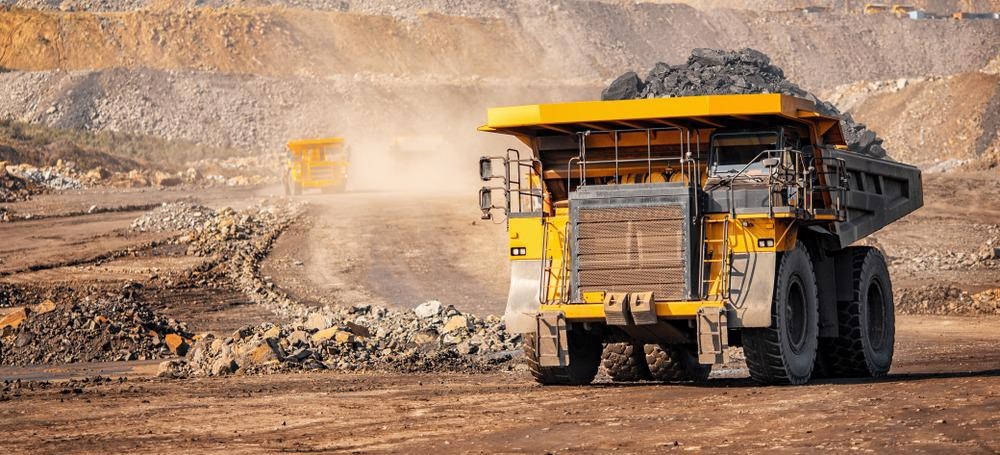The goals of the Paris Agreement, signed by 197 countries in 2015, are set to limit the increase of global average temperatures to below 2.0 °C, ideally no more than above 1.5°C. Unless global industries, governments, agencies, businesses, and citizens can all contribute to making significant changes that result in a reduction in greenhouse gas emissions, the world will face severe environmental, health, societal, and economic consequences.

Image Credit: Parilov/Shutterstock.com
If temperatures keep rising and surpass an average increase of 4 °C, the lives of millions will be put at risk due to rising sea levels and ecosystem collapse. The planet’s future will be put in jeopardy.
Decarbonizing the Mining Industry to Meet Climate Change Goals
Activities in the mining industry are attributed to 4-7% of total global greenhouse gas emissions. The industry must seriously adapt in order to reduce its carbon footprint to support global progress towards the goals of the Paris Agreement.
In addition to pressure to meet climate change goals, the mining industry is also being driven to make the shift towards greener practices from customer, employee and community demands, policy and government targets, and increasing investor pressure. The cost-effectivity of clean energy solutions is also acting as a major driver towards their integration.
Current Barriers to Decarbonizing the Mining Industry
While the decarbonization of the mining industry is vital to tackling climate change, and the adoption of greener processes offer numerous benefits, transitioning to a low-carbon economy has only recently begun gaining momentum.
A 2019 Deloitte report found the collective carbon emissions of 112 companies analyzed from 2017 to mid-2019 was 4.53 billion tons, with 96% of this attributable to oil and gas, chemicals, mining and metals, and power and utilities. These figures demonstrate the significant contribution mining operations still have on carbon emissions.
The effort involved in the decarbonization of the mining industry is potentially the greatest barrier to reducing the emissions of the sector. Significant heavy lifting is required to achieve this. Companies must bring about permanent change into all their processes; they must consider how they source and use materials, as well as how they power their operations and transportation. They must also consider how they engage with stakeholders. There is no simple solution to achieving decarbonization of an entire sector.
Here, we look at the key steps companies in the mining industry can take to overcome this barrier and move towards decarbonizing their activities.
Key Steps
Predicting and enhancing stakeholder responses
Mining companies must consider all stakeholders when making decisions about changes to processes. Overall, taking action to tackle climate change is considered positive and companies should demonstrate this, as well as how it will benefit the stakeholder. For example, lowering emissions can positively impact the local communities the mining company impacts, which can help build community support. Companies looking to offset emissions may benefit from seeking offsetting strategies that bring positive change for the surrounding communities, such as local, nature-based solutions.
Companies should make efforts to understand how different stakeholder groups might react to decisions to make changes that reduce emissions. Collecting current emissions data and creating forecasts on how changes may influence this is important to securing stakeholder support.
Thorough emissions planning
In line with enhancing stakeholder responses, is conducting thorough emissions planning. Companies must be prepared to explain to stakeholders how any actions they take will impact the business and emissions. This feeds into thorough emissions planning. This should start with an overall goal, with the individual steps then outlined to move the company towards this goal. All aspects of the business should be considered in emissions planning, from the sourcing of materials and running of operations, to logistics and partners.
ERP integration
Companies stand to benefit from leveraging available enterprise resource planning (ERP) system technology to help them understand how climate change impacts all sectors of their business, as well as how making changes towards reducing their carbon footprint may impact this.
Similar to thorough emissions planning, this stage involves assessing how as stages of the business contribute to climate change and as well as how they might stand to benefit the company if changed.
ERP systems help companies understand, with the help of real-time data, what trade-offs are necessary to result in a reduction in emissions.
Scope 3 emissions
Greenhouse gas emissions that are directly emitted from a company are scope 1 emissions. Those that are indirectly generated via the generation of purchased energy are scope 2, and scope 3 emissions are those that are emitted indirectly across the company’s value chain.
Businesses that are in the beginning stages of decarbonization often focus on scope 1 and 2 emissions, however, it is becoming increasingly important to also consider scope 3 emissions to reduce emissions effectively, reliably, and rapidly.
While the mining industry still has a long way to go to reduce its emissions and reach the carbon-neutral status that is required to help the world meet the goals of the Paris Agreement, decarbonization strategies are becoming increasingly adopted by the sector, and the above-outlined steps are helping companies to implement them.
References and Further Reading
Carvalho, F. (2017) Mining industry and sustainable development: time for change. Food and Energy Security, 6(2), pp.61-77. https://onlinelibrary.wiley.com/doi/full/10.1002/fes3.109
Joshua O’Brien and Henry Stoch. (2021) Trend 3: ESG: Getting serious about decarbonization. [Online]. Deloitte. Available at: https://www2.deloitte.com/us/en/insights/industry/mining-and-metals/tracking-the-trends/2021/decarbonization-mining-and-climate-change.html
Max Luedtke. (2021). Forward thinking: key mining trends for 2021. [Online]. ABB. Available at: https://new.abb.com/mining/key-mining-trends-2021
The 2030 decarbonization challenge. The path to the future of energy. [Online]. Deloitte. Available at: https://www2.deloitte.com/content/dam/Deloitte/uk/Documents/energy-resources/deloitte-uk-mining-and-metals-Decarbonization.pdf
Disclaimer: The views expressed here are those of the author expressed in their private capacity and do not necessarily represent the views of AZoM.com Limited T/A AZoNetwork the owner and operator of this website. This disclaimer forms part of the Terms and conditions of use of this website.